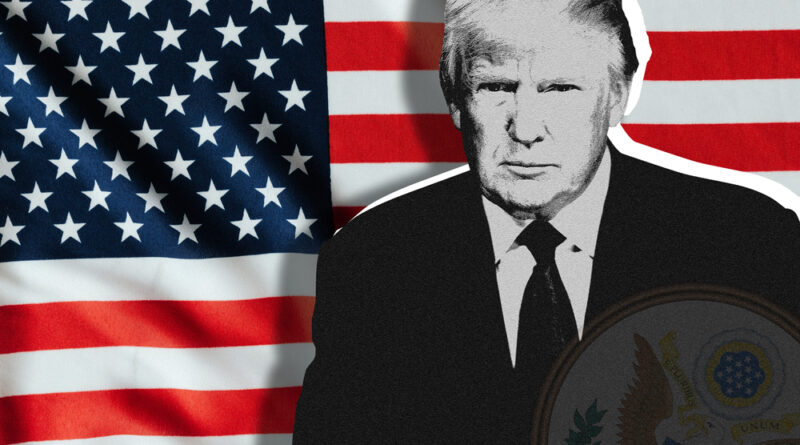One Big Beautiful Bill or a Digital Earthquake?
How Trump’s Sweeping Legislation Could Rewrite America’s Tech Map
Tax cuts and immigration caps may dominate the headlines, yet the real drama of President Donald Trump’s “One Big Beautiful Bill Act” is playing out in server rooms, state legislatures and cybersecurity war rooms. Paired with a recent executive order that scrapped several Biden-era cyber programmes, this 1,100-page behemoth signals a wholesale reshuffle of how the federal government funds, regulates and defends the nation’s digital estate. Big Tech, defence contractors and privacy advocates all have skin in the game, but their fortunes are diverging fast.
A Bill Larger Than Life—and Passing by a Hair
By a single-vote margin in late May, the House sent the legislation hurtling toward a fraught Senate showdown. Republican leaders want it on the president’s desk by Independence Day, but an unlikely alliance of fiscal hawks, civil-liberties lawyers and Silicon Valley libertarians is determined to stall, or at least rewrite, the more controversial clauses. That tension is already fracturing high-profile friendships: Elon Musk, once a loud cheerleader for Trump’s deregulatory instincts, has publicly derided the bill as bloated and overreaching.
Militarised Cyberspace: A Windfall for Defence, an Ice Age for Civilian Shields
The headline numbers are stark. The Pentagon stands to collect more than $370 billion for AI-driven threat analytics, DARPA research and secure communications. Contractors specialising in zero-trust architecture, autonomous red-teaming and quantum-resistant encryption are queuing up for lucrative multi-year deals.
Meanwhile, the Cybersecurity and Infrastructure Security Agency, leaderless since November, faces a 30 percent funding cliff. More than a thousand jobs are on the chopping block, including regional field teams that help small towns rebound from ransomware attacks. Programmes such as CyberSentry and the Joint Cyber Defense Collaborative are earmarked for severe downsizing, despite recent spikes in critical-infrastructure breaches. The paradox is glaring: Washington is pouring cash into high-end military capabilities while hollowing out the civilian shield that guards hospitals, pipelines and local governments.
Centralised AI Governance: States Put on Ice for a Decade
Perhaps the most incendiary provision is a ten-year freeze on state and municipal AI regulation. Under the act, cities can neither cap facial-recognition deployments nor mandate algorithmic bias audits without federal blessing. Industry titans such as OpenAI argue that one national rulebook beats fifty conflicting ones; civil-rights coalitions counter that frontline communities lose their only tools for checking harms in real time.
The Senate is floating a compromise that would tie broadband grants to voluntary compliance with Washington’s standards, carrot rather than stick, but states bristle at what they see as a back-door pre-emption. Whether that olive branch will calm the storm remains anyone’s guess.
Spectrum Auction, Border Tech and the Quest for Digital Sovereignty
Another cornerstone is the compulsory auction of 600 MHz of prime spectrum, forecast to raise up to $88 billion. While telecom giants salivate over expanded 5G footprints, critics note the national-security undertones: edge computing and low-latency comms are becoming battlefield necessities. In parallel, a $70 billion infusion for AI-enabled border tech drones, smart towers and unified comms backbones cements the administration’s pivot toward surveillance-heavy security infrastructure.
For cloud providers, chipmakers and satellite operators, the combined spectrum and border spend represents a once-in-a-generation opportunity. For privacy watchdogs, it is yet another step toward an always-on monitoring state.
Judicial Handcuffs: Contempt Rulings Now Pay-to-Play
Buried deep in the text lies a procedural time-bomb: plaintiffs must now post a financial bond before federal courts can enforce contempt orders against government officials. Digital rights groups warn that this could neuter judicial oversight precisely when agencies mishandle data or stonewall transparency. Imagine a scenario where a privacy watchdog wins a ruling compelling a department to purge unlawfully gathered biometric data, but cannot muster the bond to force compliance. The rule of law, critics say, risks becoming a luxury item.
Winners, Losers and an Unravelling Bromance
Winners
-
Defence Contractors, From missile-shield software to offensive cyber tools, the DoD’s chequebook is open.
-
Big AI Platforms, A single federal framework for algorithms shields them from fifty separate compliance regimes.
-
Edge-Network Vendors, Spectrum auctions and border infrastructure translate into massive hardware and cloud deals.
Losers
-
CISA, Reduced to a shell of its former self, the agency loses staff, programmes and influence.
-
State & Local Governments, Stripped of AI oversight, they must wait a decade before tailoring safeguards to local harms.
-
Civil Liberties, Expanded surveillance powers and curtailed judicial remedies tilt the privacy-security balance decidedly toward the state.
The most visible casualty, however, is the Trump–Musk relationship. Long united on laissez-faire innovation, they now stand at opposite poles: Trump embracing a fortress-America model that centralises power, Musk railing against what he sees as a bloated, interventionist playbook.
A Fork in the Digital Road
The “One Big Beautiful Bill Act” is less a single law than a structural pivot toward federal primacy in tech governance. By coupling lavish defence spending with aggressive centralisation, Washington is betting that national security and market clarity outrank decentralised oversight and local autonomy. For tech giants, the path is paved with contracts and predictable rules. For smaller innovators, states, and ordinary citizens, the next decade looks like an experiment in what happens when the perimeter grows taller, even as the custodians inside shrink in number.
Whether this reshuffle leaves the nation more resilient or more exposed will hinge on forces no single bill can fully control: the ingenuity of attackers, the dynamics of global power competition and the willingness of communities to push back when Washington overplays its hand. But one conclusion is already clear: America’s digital future just pivoted, and everyone, from start-ups in Austin, to election clerks in Ohio, will have to recalibrate their defences, budgets and expectations accordingly.
Photo Credit: DepositPhotos.com

